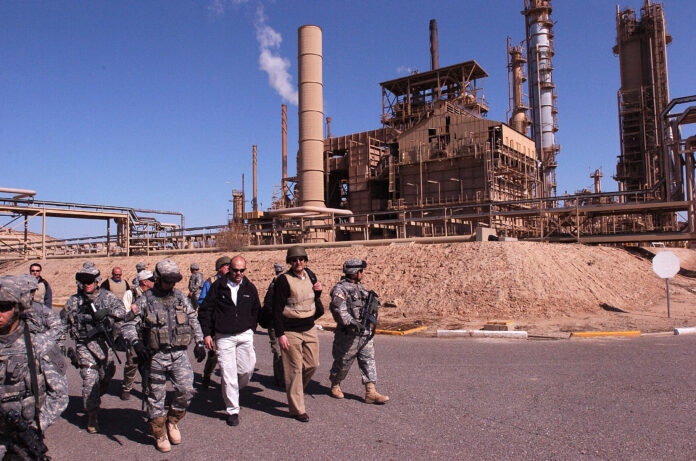Iraq’s Prime Minister Mohammed Shia al-Sudani announced the long-awaited reopening of the Beiji refinery on Friday.
The refinery, the largest in Iraq, had been out of commission for a decade following extensive damage sustained during the battle against the Islamic State extremist group.
The revival of operations at the Beiji refinery marks a crucial milestone for Iraq, as it enables the nation to meet its domestic oil derivative needs internally.
Prime Minister al-Sudani emphasized that this development will result in substantial savings, amounting to billions of dollars annually, which can then be redirected towards other essential services and economic sectors.
Despite Iraq’s significant oil production capacity, exceeding 4 million barrels per day, the country has continued to rely on oil derivative imports.
However, with the resumption of operations at Beiji, Iraq is poised to achieve self-sufficiency in oil derivatives by the middle of the year, according to al-Sudani.
The strategic significance of the Beiji refinery cannot be overstated. Situated 250 kilometers north of Baghdad, the facility played a pivotal role in the battle against the Islamic State.
Following the extremist group’s seizure of the town in 2014, the refinery fell into disrepair, with much of its equipment looted and damaged during the ensuing conflict.
The reopening of the Beiji refinery also comes at a crucial juncture for Iraq, amidst negotiations for the withdrawal of U.S.-led coalition forces deployed in the country.
Tensions in the region have been heightened by recent events, including Israel’s conflict in Gaza, which has reverberated across the Middle East.
In response to perceived U.S. support for Israel, a coalition of Iran-backed militias known as the Islamic Resistance in Iraq has carried out numerous attacks on bases housing U.S. troops in Iraq and Syria since October.
While these attacks have subsided in recent weeks, discussions between Iraqi and U.S. officials regarding a withdrawal framework for coalition forces have resumed.
Furthermore, Iraq’s Ministry of Electricity recently received a proposal from a Qatari company to invest in the nearby Beiji thermal station.
This initiative aims to enhance Iraq’s energy infrastructure by developing six production units capable of generating 2,100 megawatts of electricity.
The reopening of the Beiji refinery signals a pivotal moment in Iraq’s journey towards economic recovery and self-reliance.
By reclaiming control of this vital asset, Iraq aims to strengthen its position on the global stage while mitigating its dependence on external sources for essential oil derivatives.
As the nation navigates through regional tensions and works towards securing its energy future, the revival of the Beiji refinery stands as a testament to Iraq’s resilience and determination to overcome the challenges that lie ahead.
This article was created using automation technology and was thoroughly edited and fact-checked by one of our editorial staff members

